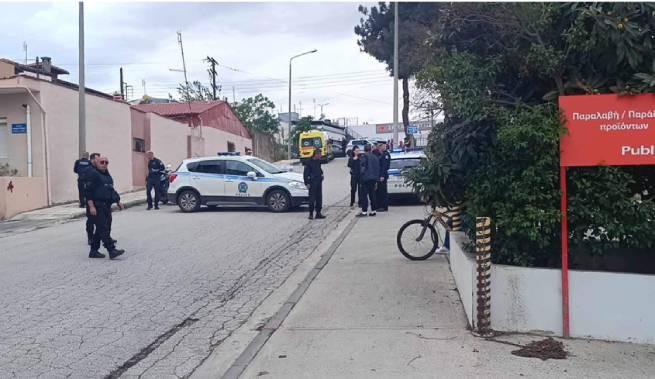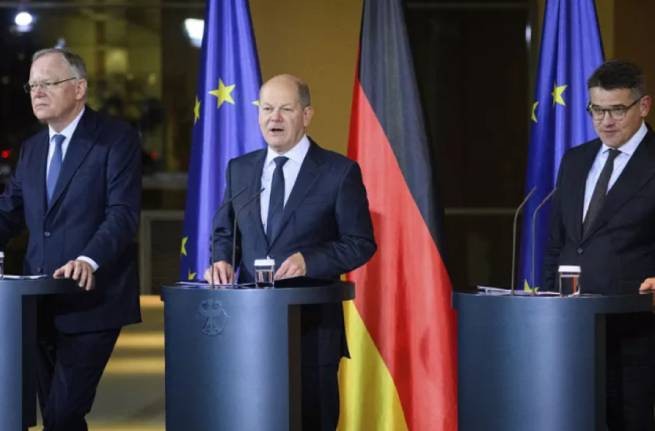Months of disputes in Germany have ended, resulting in cuts in social benefits for refugees and the adoption of measures to limit migration. The new rules will also affect Ukrainians.
General changes
From 2024, the federal center will pay a lump sum for each asylum seeker (the total amount, without differentiating its components) in the amount of 7,500 euros per year. Instead of cash, migrants will receive cards for payment. German Chancellor Olaf Scholz and the heads of state governments agreed on this and a number of other issues on the night of November 7 during a meeting. That is, the amount of financial participation of the center will depend on the specific number of refugees under state care.
Payment reduction
Social benefits for asylum seekers will be cut. Until now, they were entitled to receive social benefits (Bürgergeld) after 18 months of receiving the reduced benefit, but now the waiting period will increase to 36 months.
It is especially emphasized that migrants subject to protection, refugees from Ukraine and migrants whose stay on the territory of Germany is forced to tolerate, after 36 months, if living in hostels, will receive only “those payments that they really need.”
At the meeting in Berlin, it was decided to limit refugees’ access to cash as much as possible, so they will be issued a special card to pay for services. By the end of January, the working group will develop an appropriate model. More specifically, the main changes look like this: writes German edition of Deutsche Welle:
- Adult asylum seekers will need to live 36 months, rather than 18 as before, to receive the standard social benefit of 502 euros per month and full health insurance. In the first 36 months they will receive 410 euros with the opportunity to treat only urgent diseases;
- In this case, part of the benefit will be transferred not in cash, but to a special card – it will be possible to pay for food and clothing (this is done so that the money remains in Germany and refugees do not transfer it to their homeland);
- the time frame for considering asylum applications will be significantly reduced (initial entry – no later than a month, decision – no later than six months), the consideration of the case in court should also become faster;
- control at the German borders will be maintained. If neighboring countries agree, checks will be carried out on their territory.
Billion dollar savings
The German government has estimated that the new measures will save states and municipalities 1 billion euros. Thanks to annual lump sum payments of 7,500 euros per migrant, the financial burden of the states and municipalities will be reduced by almost 3.5 billion euros next year.
Christian Lindner, Germany’s finance minister, expressed satisfaction with the compromise reached, pointing out that it would not only ease the financial situation of the states and communes, but would also “weaken the attractive force of the German welfare state” for migrants. Olaf Scholz, Chancellor of Germany, noted, quotes euronews:
“Our common goal is to curb illegal migration. One thing is clear, we need more effective protection of Europe’s external borders and we need solidarity distribution in Europe. It is therefore also necessary that we do everything to ensure that the repatriation of those who are not “can stay. Migration agreements with countries of origin and countries of transit are a prerequisite for this.”
Refugee camps abroad
Yet Carsten Linnemann, secretary general of the opposition Christian Democratic Union, says the agreed measures are insufficient to curb illegal migration into Germany, which is causing the country is tired. He called for asylum applications to be considered in third countries:
“We need systemic changes to ensure that only people whose asylum application has already been approved come to Germany.”
Scholz promised to explore the possibility of processing asylum applications abroad, following the example of the recent agreement between Rome and Tirana, under which Italy will build refugee centers in Albania and send there migrants rescued in the Mediterranean. The opposition called this agreement a betrayal. Meanwhile, Sali Berisha, head of the Democratic Party of Albania, said:
“With my respect to Italian Prime Minister Giorgia Meloni, I must tell her that Edi Rama’s signature on this agreement is invalid. It is invalid because Edi Rama is a Prime Minister under international investigation who is ready to sign anything.” .
The European Commission said it had asked the Italian government for “details” about the agreement with Albania, but it was not similar to the 2022 migrant pact between Britain and Rwanda, which drew criticism from Europeans, according to a Brussels spokesman.







More Stories
Large-scale raids in Britain, the first illegal immigrants are detained for sending to Rwanda (video)
UK: controversial bill on deportation of migrants to Rwanda passed
Chaos in Paris due to Afghan demonstration